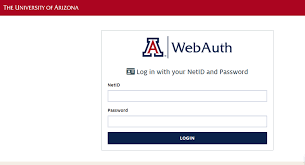All Should You Know About A-Level Studies, Environment and Scope

A-Level studies are advanced academic courses that are typically taken by students in their final two years of secondary education, in preparation for university-level study. In the United Kingdom, A-Levels are offered by a number of Examination Boards, with each Board offering a different range of subjects.
The scope of A-Level studies varies depending on the subjects chosen, but typically includes advanced knowledge and understanding of the chosen subject matter, as well as the development of critical thinking and research skills. A-Levels are generally assessed through a combination of written examinations and coursework, and successful completion of an A-Level course can lead to the award of an A-Level qualification, which is widely recognized by universities around the world.
What students should know about A-Level Studies and Courses
The A-Level is a two-year course typically taken by students aged 16-18 in the United Kingdom.
A-Levels are offered by a number of Examination Boards, each offering a different range of subjects.
The scope of A-Level studies varies depending on the subjects chosen, but typically includes advanced knowledge and understanding of the chosen subject matter, as well as the development of critical thinking and research skills.
A-Levels are generally assessed through a combination of written examinations and coursework, and successful completion of an A-Level course can lead to the award of an A-Level qualification, which is widely recognized by universities around the world.
What students should know about A-Level Studies and the Environment
A-Level studies typically take place in secondary schools, sixth form colleges, or further education colleges in the United Kingdom.
The number of hours of weekly contact time for A-Level courses varies depending on the subject, but is typically around 10-12 hours per week.

In addition to scheduled contact time, students are expected to undertake a significant amount of independent study, including reading, research, and revision.
A-Level Studies and the Scope
The scope of A-Level studies varies depending on the subjects chosen, but typically includes advanced knowledge and understanding of the chosen subject matter, as well as the development of critical thinking and research skills.
A-Levels are generally assessed through a combination of written examinations and coursework, and successful completion of an A-Level course can lead to the award of an A-Level qualification, which is widely recognized by universities around the world.
What subjects to study in A-Level
The subjects available for study at the A-Level vary depending on the Examination Board chosen, but typically include a mix of arts, humanities, sciences, and social sciences.
Some popular A-Level subjects include English, Mathematics, Biology, Chemistry, Physics, History, Geography, and Languages.

Examination and assessments – A-Level Examinations
A-Level examinations are typically held at the end of the two-year course, in May/June of the student’s final year.
Examinations are usually a mix of written papers and coursework, and the assessment format varies depending on the subject.
Successful completion of A-Level examinations can lead to the award of an A-Level qualification, which is widely recognized by universities around the world.
A-Level Coursework and Course Outline
A-Level coursework is typically a written assignment or project, which is completed by the student during the course of the two-year A-Level program.
Coursework is usually worth a significant proportion of the overall grade for the A-Level, and the assessment format varies depending on the subject.
A-Level Grading System
A-Level grades are typically expressed on a scale of A*-E, with A* being the highest grade and E being the lowest.
The grade awarded for an A-Level depends on the marks achieved in the written examinations and coursework, and the grade boundaries vary from year to year.
A-Levels are widely recognized by universities around the world, and successful completion of an A-Level course can lead to the award of an A-Level qualification, which is typically required for entry into university-level study.
In the United Kingdom, A-Levels are typically required for entry into undergraduate degree programs at most universities.

Entry requirements for universities vary depending on the institution and the degree program, but typically include a minimum number of UCAS points, which are awarded based on the grades achieved in the A-Level examinations.
Students perspectives and career after A-Level
A-Levels can lead to a wide range of careers, depending on the subjects chosen and the grades achieved.
A-Levels are typically required for entry into professions such as medicine, dentistry, veterinary science, and architecture, as well as many others.
A-Levels can also provide a foundation for further study at the postgraduate level, leading to careers such as teaching, research, and academia.
Few things you should know about A-Level mathematics
A-Level is a two-year course typically taken by students aged 16-18 in the United Kingdom. A-Level mathematics is offered by a number of Examination Boards, each offering a different range of subjects.
The scope of A-Level mathematics varies depending on the subjects chosen, but typically includes advanced knowledge and understanding of the chosen subject matter, as well as the development of critical thinking and research skills. For that reason, students prefer to consult experienced and professional A-Level Maths Tutors.
A-Level mathematics is generally assessed through a combination of written examinations and coursework, and successful completion of an A-Level mathematics course can lead to the award of an A-Level qualification, which is widely recognized by universities around the world.
Should a student take online private tuitions when studying A-Levels
It depends on the individual student’s needs and preferences. Some students may benefit from the additional support and guidance that online private tuitions can provide, while others may prefer to study independently. Ultimately, the decision of whether or not to take online private tuitions when studying A-Levels should be made by the student in consultation with their parents or guardians.
Conclusion
A-Levels are advanced academic courses that are typically taken by students in their final two years of secondary education, in preparation for university-level study. A-Levels are offered by a number of Examination Boards, with each Board offering a different range of subjects. The scope of A-Level studies varies depending on the subjects chosen, but typically includes advanced knowledge and understanding of the chosen subject matter, as well as the development of critical thinking and research skills. A-Levels are generally assessed through a combination of written examinations and coursework, and successful completion of an A-Level course can lead to the award of an A-Level qualification, which is widely recognized by universities around the world.




